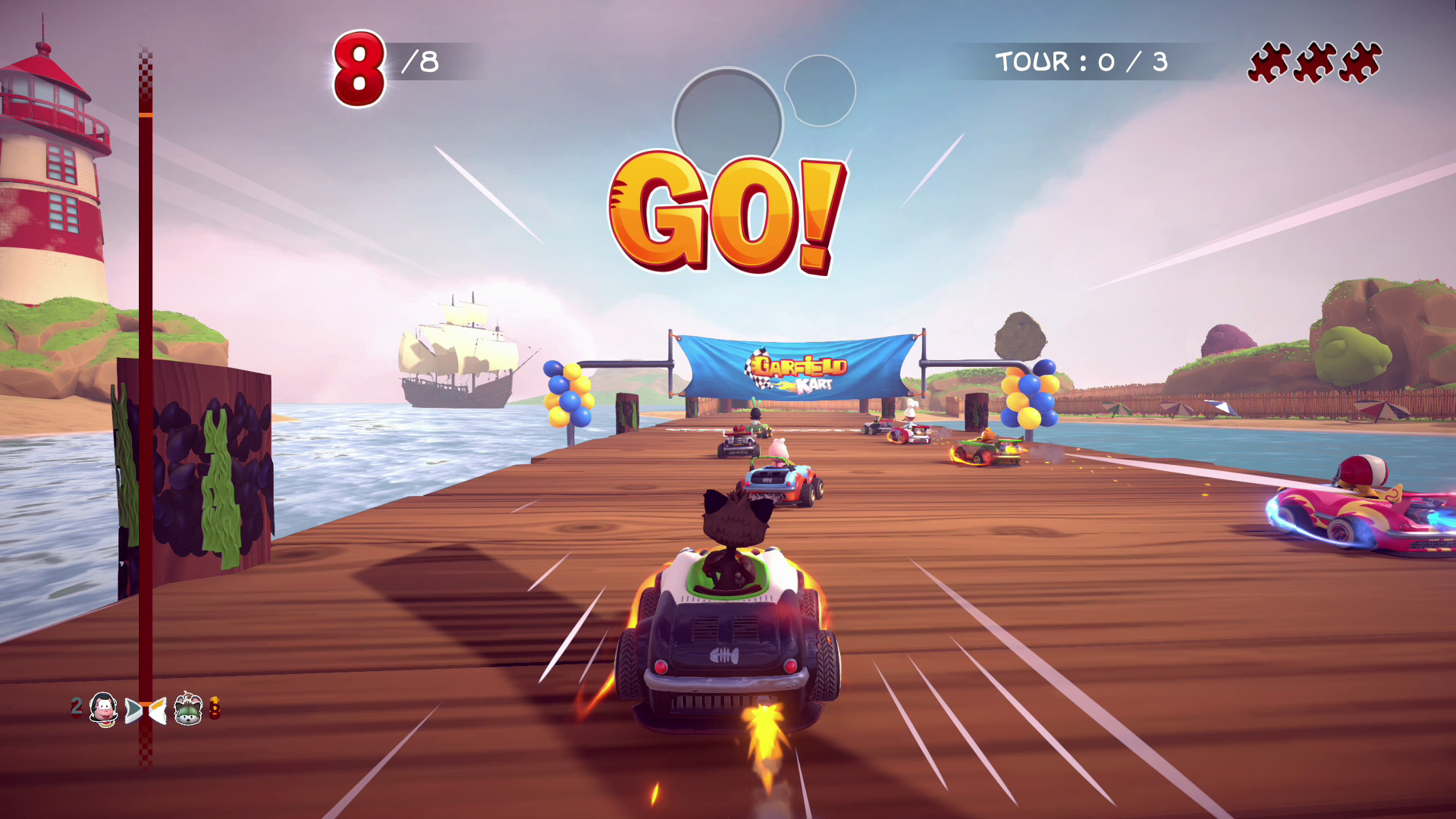

The text of a play is a spell: an invocation of power, but one which cannot take full effect until imbued with physicality by performers on a stage. For if physics is one way to codify the business of magic, then theatre is another. I will do so only in the archaic, theatrical sense of the word. Just as I am loathe to call Garfield Kart Furious Racing a ‘game’, so too am I unhappy to call us ‘players’.
Garfield kart pc code#
And indeed, it was not: 3am arrived, the code was activated, and the players began to race.īefore we get into the thick of it, however, one more short note on terminology. But if Garfield Kart Furious Racing says anything unambiguously, it’s that the clock can never be stopped. It would require us, like the mass of cells teeming in a growing zygote, to transcribe genotype into phenotype.Īnd we were ready: a legion of us, fingertips crackling above our keyboards with the electricity of anticipation, as we awaited the crucial hour. Less of a game, then, and more of a gamete - at least for that moment. To think now, that all the genius, all the singular agony of the work, was condensed into just a few million lines of alphanumeric shorthand, is as hard to comprehend as the information required to build a human being archived in the chemical broth at the heart of a cell. Only when this art was sullied with our own digital hands, could it be real. Only when that box was opened, could we know if the cat was Garfield. A sealed box, if you will, containing a cat.


In the early hours of last Tuesday, as I and a thousand others waited for the 3am activation of our review copies, GKFR existed entirely in potentia: a few million lines of code, disembodied on some server in Northern California, waiting to be defined through our shared experience. According to the Copenhagen Interpretation of quantum mechanics, by observing a phenomenon, we cannot help but change it - and never has this been more true than in the case of Garfield Kart Furious Racing. Could we call it a text, perhaps? Possibly - but one that can only be considered complete in the act of its being engaged with. It’s heartbreaking, really, to resort to a term so crude as “game” to describe Garfield Kart Furious Racing. And indeed, in writing as a critic, I expand the work yet further. In a sense, then, I am reviewing my own work - for in engaging with GKFR, I became one of its authors. Because GKFR, you see, is a collaborative effort - directed, certainly, by its developers at Artefacts Studio, but only comprehensible as an ever-changing consensus between the game itself, its players, and its critics. In the plainest terms, I would say I participated in it: I offered my own myopic contribution, alongside millions of others, to form the baroque gestalt of the work as a whole. I cannot say, in truth, that I played Garfield Kart Furious Racing.


 0 kommentar(er)
0 kommentar(er)
